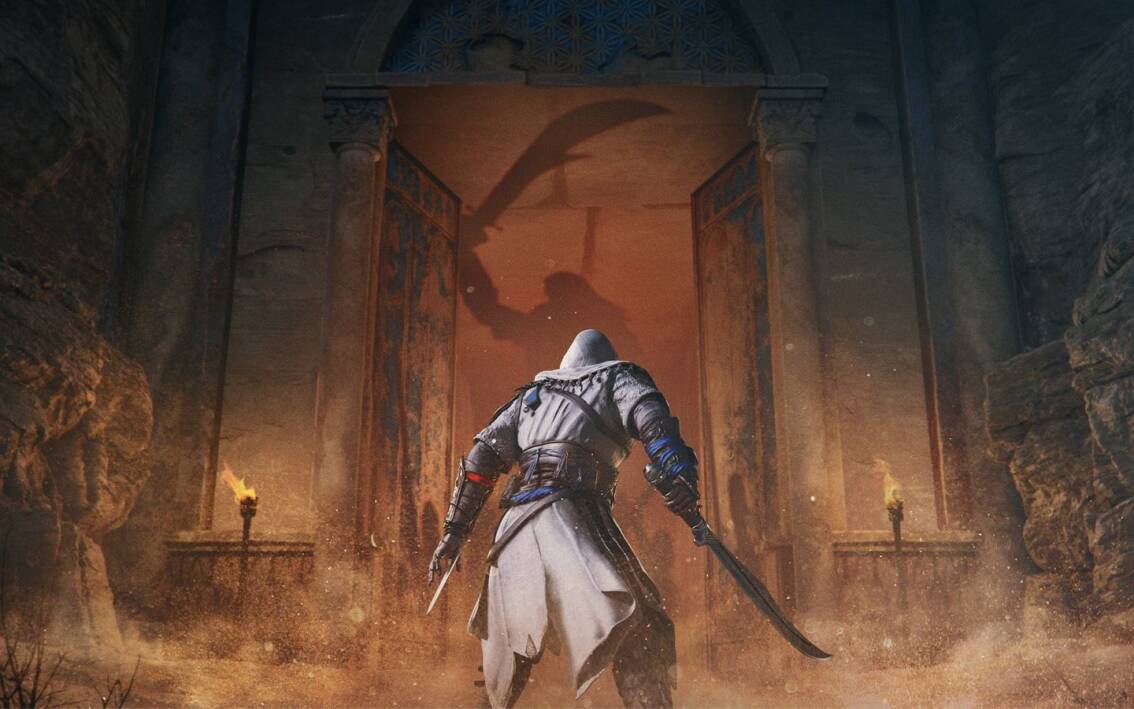Thick Thighs Save Lives
NeoGAF's Physical Games Advocate Extraordinaire
Ubisoft explained that the presence of Arabic dubbing in Assassin's Creed Mirage (a first for the saga) was also inspired by Ghost of Tsushima and its Japanese dub.
Mohammed Alemam – manager and cultural consultant – explained that "The game is fully dubbed in Arabic. It's part of the game. We paid special attention to the fact that people love playing Ghost of Tsushima in Japanese, for example. Honestly, it would have been a shame miss the opportunity to return to the Middle East with Assassin's Creed and otherwise [includere] a language that is still here," he says. "It's more accurate to play in Arabic, even if you're not Arab."
Ubisoft explains that the implementation of the language began early in Mirage's development. Although linguistic and cultural relevance required a lot of work, the basic translation was easy, as Classical Arabic is easily available and actively spoken.
Alemam says: "Classical Arabic it is still taught in schools today. So, people grow up in the Arab region, learning [la lingua]. It is used in academia, entertainment, news, and newspapers. Many books are also written in classical Arabic. So people are used to this language, which is still preserved."
Expectations of authenticity have also extended to English voice cast of Mirage. Sala states: "For the English version, some of the main actors are of Arab origin and speak the same language. As for the names of places, people and expressions such as greetings in Arabic, if you cast actors who don't speak Arabic , they would not be able to [pronunciare] things correctly and it would be strange for someone with an Arab background."
To ensure the cultural accuracy of Mirage, Ubisoft used localization and language services provider Arlation, and eight linguistic experts they worked on the game. He has also collaborated with experts such as Dr Raphaël Weyland and art historian Glaire Anderson.
They were added to Alemam other Ubisoft collaborators who worked on language and culture. Maya Loréal, senior manager of inclusive games and content, and Malek Teffaha, senior manager of project management for inclusion and accessibility, worked on the project.
The development team also enlisted the help of Ubisoft task force for Humanities and Inspiration, led by Thierry Noël, in-house historians Dr. Raphaël Weyland and Maxime Durand, and director of strategic alliances Amy Jenkins.

Assassin's Creed Mirage also included Arabic dubbing thanks to Ghost of Tsushima
Ubisoft explained that the presence of Arabic dubbing in Assassin’s Creed Mirage (a first for the saga) was also inspired by Ghost of Tsushima and its Japanese dub. Mohammed Alemam – manager and cultural consultant – explained that “The game is fully dubbed in Arabic. It’s part of the game. We...
 pledgetimes.com
pledgetimes.com

